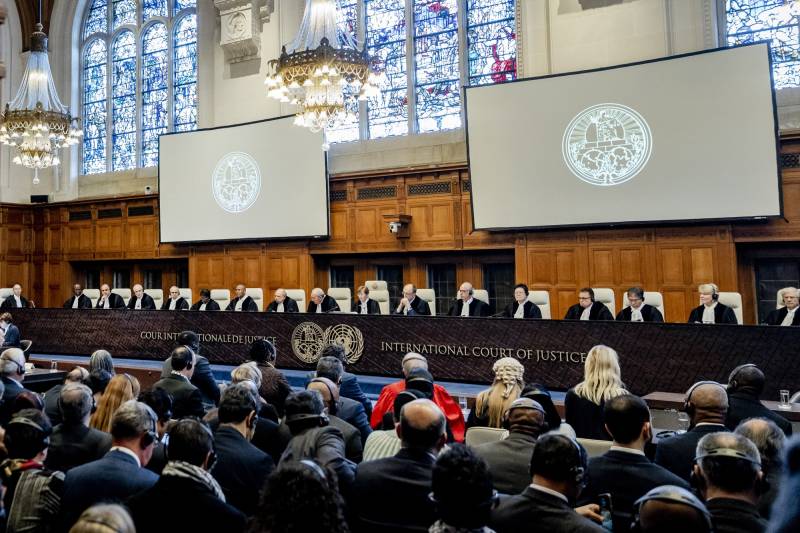
In a landmark advisory opinion, the United Nations' International Court of Justice has declared Israel's occupation of Palestinian territories to be against international law. The ICJ called for an immediate cessation of settlement activities in the occupied West Bank and East Jerusalem, and the end of Israel's "illegal" occupation of these areas and the Gaza Strip.
Israeli Prime Minister Benjamin Netanyahu strongly criticized the ruling, labeling it a "decision of lies." While the ICJ's advisory opinion is not legally binding, it holds significant political weight and marks the first time the court has addressed the legality of Israel's 57-year occupation.
The court was specifically asked to assess Israel's policies and practices towards Palestinians and the legal status of the occupation.
ICJ President Nawaf Salam announced the findings, stating, "Israel's continued presence in the Occupied Palestinian Territory is illegal." He emphasized that Israel must end its unlawful presence in these areas as swiftly as possible. The court noted that Israel's withdrawal from the Gaza Strip in 2005 did not end the occupation, as Israel continues to exercise effective control over the region.
The ICJ also called for the evacuation of all Israeli settlers from the West Bank and East Jerusalem and the payment of reparations to Palestinians for damages caused by the occupation. Since 1967, Israel has built approximately 160 settlements housing around 700,000 Jews in these territories, which the court deemed illegal
The court's opinion stated that Israel's policies amount to the annexation of large parts of the Occupied Palestinian Territory, which contravenes international law. The ICJ’s advisory opinion asserted that Israel is not entitled to sovereignty over any part of the occupied territories.
Israel claims sovereignty over the entire city of Jerusalem, including its eastern half, captured in the 1967 Middle East war, and considers it its indivisible capital—a claim widely disputed by the international community.
Among other conclusions, the court found that Israeli restrictions on Palestinians in the occupied territories constitute "systemic discrimination based on, inter alia, race, religion, or ethnic origin." It also highlighted Israel's illegal exploitation of Palestinian natural resources and violations of their right to self-determination. The court advised states to avoid any actions, including providing aid or assistance, that would perpetuate the current situation.
Netanyahu swiftly rejected the court's findings, asserting, "the Jewish people are not occupiers in their own land—not in our eternal capital Jerusalem, nor in our ancestral heritage of Judea and Samaria (the West Bank)." Netanyahu insisted that the legality of Israeli settlements in all parts of their homeland is indisputable.
Palestinian leaders welcomed the court's opinion. Hussein Al Sheikh, the secretary general of the Palestine Liberation Organization (PLO), described it as "a historic victory for the rights of the Palestinian people and their right to self-determination." He urged the international community to respect the court's opinion and compel Israel to end its occupation.
The ICJ's findings will be presented to the UN General Assembly, which will decide on the next steps, potentially adopting a resolution that could catalyze negotiations and set legal parameters for a future settlement.
This case is separate from another ongoing case brought by South Africa, accusing Israel of committing genocide against Palestinians in the Gaza conflict.
The ICJ's opinion also included obligations for Israel to pay reparations and evacuate settlers from the occupied territories.
The opinion has provoked strong reactions from West Bank settlers and politicians, such as Finance Minister Bezalel Smotrich, who called for formal annexation of the West Bank in response. Israel Gantz, head of the Binyamin Regional Council, stated that the opinion contradicts the Bible, morality, and international law.
The court emphasized that the UN Security Council, the General Assembly, and all states have an obligation not to recognize the occupation as legal nor provide aid or assistance to maintain Israel's presence in the occupied territories.
In 2004, the ICJ similarly ruled that an Israeli separation barrier around most of the West Bank was illegal and that Israeli settlements were established in violation of international law—a ruling that Israel also dismissed.
